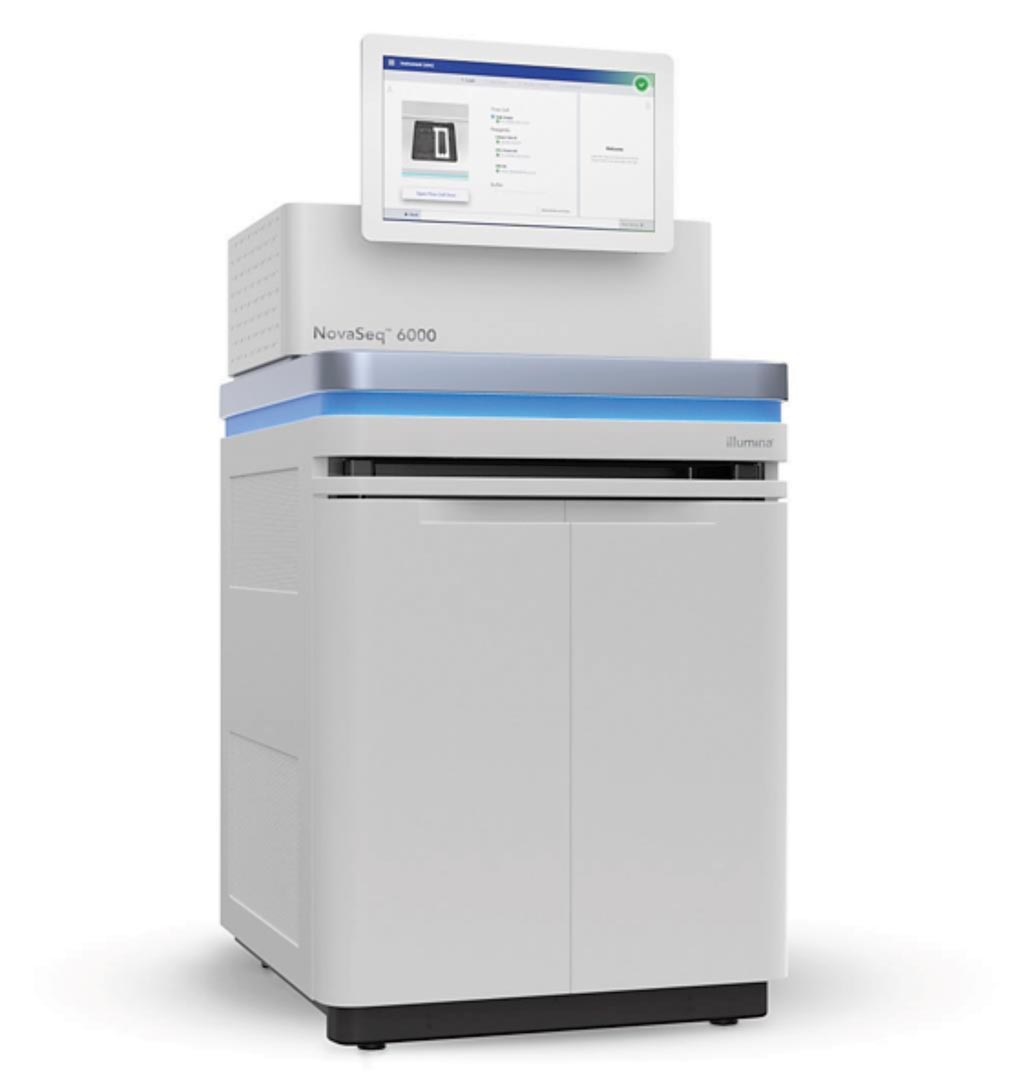Diverse Chronic Kidney Diseases Diagnosed with Exome Sequencing
By LabMedica International staff writers
Posted on 08 Jan 2019
Exome sequencing is emerging as a first-line diagnostic method in some clinical disciplines, but its usefulness has yet to be examined for most constitutional disorders in adults, including chronic kidney disease, which affects more than 1 in 10 persons globally.Posted on 08 Jan 2019
Targeted capture and sequencing of the protein-coding regions of the genome through exome sequencing is increasingly applied as a first-line diagnostic tool in clinical medicine, particularly for the diagnosis of metabolic and neurodevelopmental disorders in children, as well as for the detection of causal mutations in cancer.

Image: The NovaSeq 6000 sequencing system platform (Photo courtesy of Illumina).
A large team of scientists led by those at Columbia University (New York, NY, USA) conducted exome sequencing and diagnostic analysis in two cohorts totaling 3,315 patients with chronic kidney disease. In all, 3,037 patients (91.6%) were over 21 years of age, and 1,179 (35.6%) were of self-identified non-European ancestry.
Genomic DNA was isolated from samples obtained from patients in accordance with standard protocols, and of sequence capture was performed using either the NimbleGen SeqCap Exome EZ kit or the IDT xGen Exome Research Panel kit and analyzed with an in-house pipeline to identify diagnostic variants for patients’ renal disease. Paired-end sequencing was performed on the 2500 HiSeq platform or the Illumina NovaSeq 6000 platform, using 125bp and 150bp reads, respectively.
The scientists detected among the 307 patients diagnosed with the help of exome sequence data, the team saw 206 autosomal dominant disease cases, 42 individuals with autosomal recessive disease, 54 X-linked conditions, and five individuals with more than one molecular diagnosis. The proportion of cases diagnosed with exome sequences notched up in the cases not diagnosed previously with standard clinical testing. There, the exome sequences led to molecular diagnoses in 48 (more than 17%) of those cases. Another 18 patients had their diagnoses refined with the new genetic data, while secondary findings in non-kidney disease-related genes, including immunosuppression-related genes, informed the types of treatments provided for still more individuals with chronic kidney disease.
The authors concluded that their findings support the diagnostic utility of exome sequencing across different clinical categories of kidney disease and highlight the potential of genetic testing to accurately direct patients to relevant clinical trials and targeted therapies, encouraging similar investigations across other subspecialties. The study was published on December 13, 2018, in the journal The New England Journal of Medicine.
Related Links:
Columbia University














